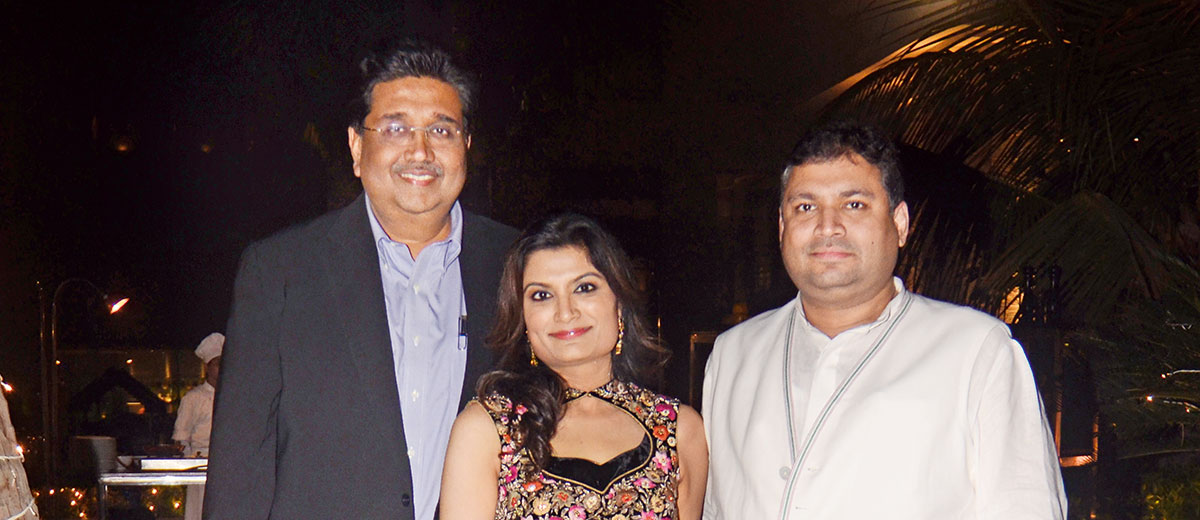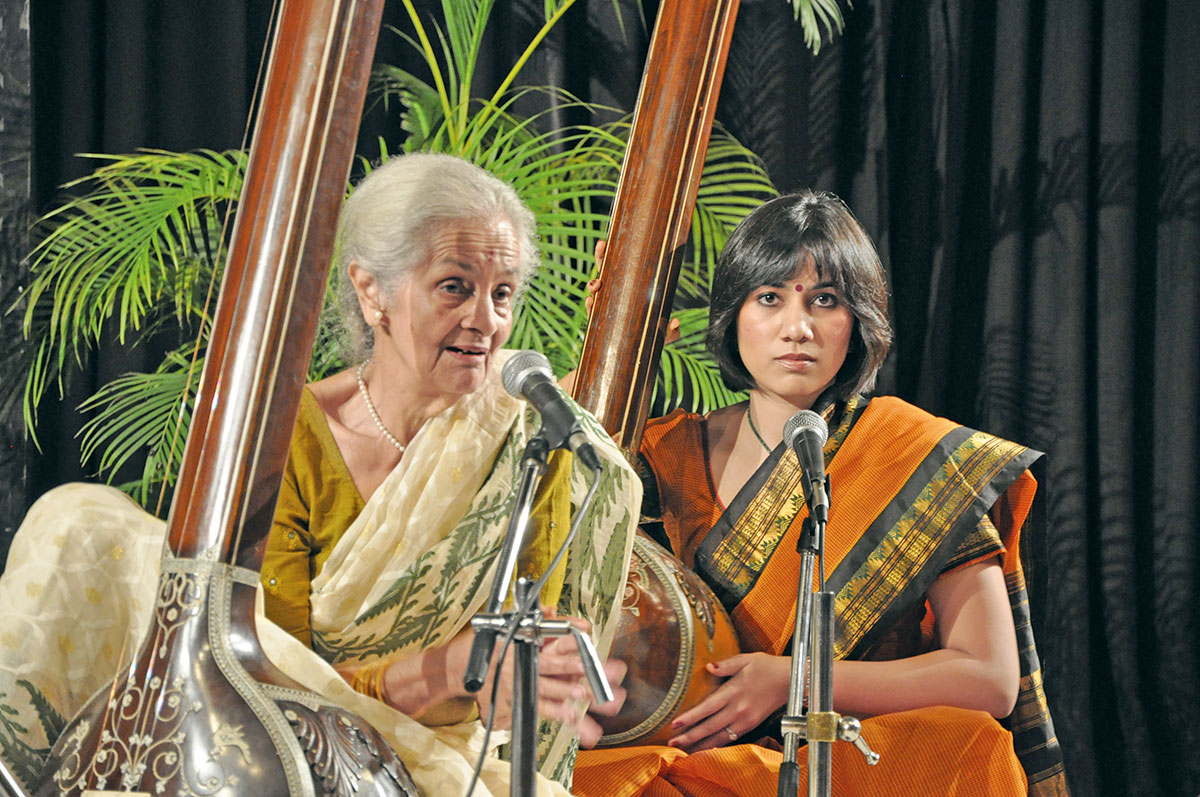
A Marwari Unto Death
I sometimes wonder whether I was a nomad in my past life. I am constantly moving from one place to another with my suitcase, and sometimes even without one. When it all began, people would wonder about my constant change of place; some would raise their eyebrows—’Why does he move around so much?’—but now that they have got used to my nomadic way of life, they often joke that I could be at two different locations on the planet, on the same day. Well, it is true that I travel a lot. But the one thing that has remained unchanged about me is that wherever I go, I carry my roots along with me. And, what’s equally important is no matter how far I travel, I have to go back to my roots in Rajasthan to recharge myself.
An inexplicable bond
It is difficult to say what connects me to Marwar. Is it the language that I speak— Marwari—or, is it the food that I love the most still? Or, is it my childhood memories of Churu and Sujangarh and their pathshalas? Perhaps it is Marwar’s folk music and its vibrant culture that manifests itself in the colourful turbans I wear that change in style and colour every few miles. Or, is it the umbilical tie to my family home that still stands in Sujangarh, a place that I go back to again and again? Sometimes, I even feel it is the literature of Vijaydan Detha, Kanhaiya Lal Sethia or Rani Lakshmibhai Chundawat, or maybe the historical tales of the bravery of the rulers of Rajputana that bind me to the region. And then, how can I not talk of the tigers of Ranthambore that have made me an animal lover—to the extent of not just penning a book on the big cats titled The Safari, but also going on to adopt two tigers in two different parts of the world. Whatever the reason, my love for Rajasthan is quite understandable; but what about people from all over the world who are attracted to the region. Why does every sixth tourist visiting India go to Rajasthan? Put simply, Rajasthan’s charm mesmerises all, Indian or foreigner, and I am no exception. Maybe this is because my ties with this fascinating part of the country is three-fold, my life being a strange concoction of paradoxes: I was born in the Oswal community; I was groomed by a foster mother, who was from the Agarwal community; and I have married into the Maheshwari community—all three are important segments of the Marwari society.
Childhood revisited
I was born in the Churu district of the Shekhawati region, in a haveli called Haveli Parakh, belonging to the maternal side of my family. It is situated bang in the middle of the town’s main market and is renowned for its Shekhawati style artworks, its rooms adorned with gold leaf painting that fascinate me even today and rejuvenate me on every visit. During my early childhood, as part of a large joint family, I spent a few years in Churu as well as my native Sujangarh. However, because of my rebellious nature, I never got along with anybody ever. In fact, I was the first person in the family of more than 50 members to go abroad. Maybe it was again because of my rebellious nature that I chose to get married at the Birla Temple of Kolkata, without any dowry, and in the presence of about twenty-five people from both sides of the family. This was at a time when lavish weddings were becoming a status symbol in the Marwari community and the dowry system was at its peak.
 When I look back, I feel it was destiny that took me back to Rajasthan from the school in Delhi where I was studying… so that I could feel the heartbeat of Marwar once again. My grandfather’s ill health got me out of school and took me back to Sujangarh, as well as Bikaner where I spent a few months. I remember playing gilli-danda and kabaddi with other boys those few months and celebrating Holi for over 15 days. These perhaps are some of the most memorable and happiest days of my life and I will cherish them forever.
When I look back, I feel it was destiny that took me back to Rajasthan from the school in Delhi where I was studying… so that I could feel the heartbeat of Marwar once again. My grandfather’s ill health got me out of school and took me back to Sujangarh, as well as Bikaner where I spent a few months. I remember playing gilli-danda and kabaddi with other boys those few months and celebrating Holi for over 15 days. These perhaps are some of the most memorable and happiest days of my life and I will cherish them forever.
An ingrained ethos
In my travels abroad, I have met numerous non-resident Indians, with many hailing from Rajasthan. Their lifestyle has always been a subject of great interest to me. These people, with their Indian roots, thriving in different countries, have seamlessly blended with their surroundings; yet many of them have retained their Indianness. My book Aapbeeti Jagbeeti is a compilation of travelogues depicting many such Indian families, some even settled in remote continents.
It feels strange sometimes to be told by my Marwari friends that I am not like them—despite the fact that I chair several Rajasthani organisations. The reason why they feel this way is because I do not do what they do, that is, run a business. My non-Marwari friends, who are larger in number, are equally vocal in asserting that I am very much unlike Marwaris. I am yet to understand why they say this, because I do not agree with their reasoning that my knowledge and passion for art, literature and the performing arts is not commonly found among Marwaris.
 I do not believe that to be connected with Marwar, you necessarily have to live there. A case in point is my late foster mother, Dr Prabha Khaitan, whose books on Rajasthan bagged many awards, including one from the President of India. And to think she had never been to Rajasthan in her life! The only time she did (to the place of her origin) was when she died. And that too just for a day! Yet, after reading her books, no one can imagine that the world she created within those pages was not authentic in any way. It is difficult to imagine that the language she used was of a land she had never been to—she always cited her mother as the reason why she was so close to the language. The ethos she wrote about so eloquently was one that she had only a distant relationship with geographically. She truly epitomised the adage that you can take a Marwari out of Marwar, but you cannot take Marwar out of a Marwari!
I do not believe that to be connected with Marwar, you necessarily have to live there. A case in point is my late foster mother, Dr Prabha Khaitan, whose books on Rajasthan bagged many awards, including one from the President of India. And to think she had never been to Rajasthan in her life! The only time she did (to the place of her origin) was when she died. And that too just for a day! Yet, after reading her books, no one can imagine that the world she created within those pages was not authentic in any way. It is difficult to imagine that the language she used was of a land she had never been to—she always cited her mother as the reason why she was so close to the language. The ethos she wrote about so eloquently was one that she had only a distant relationship with geographically. She truly epitomised the adage that you can take a Marwari out of Marwar, but you cannot take Marwar out of a Marwari!
Maybe that is why even today, after having thrown some of the best and the maximum number parties in the City of Joy, I remain a teetotaller and a strict vegetarian—a fact that still surprises many. For this, and for giving me a true understanding of the Marwari culture, and the etiquette and norms of the Marwari society, I must thank my biological mother, Kusum Bhutoria, who was instrumental in inculcating in me my very traditional upbringing. But that did not stop her from being liberal with me. She stood by me like a rock in the face of family opposition and even fought with my other more traditional family members to let me go in the direction I wanted to—like getting involved with the activities of Marwari youth federations and other social and cultural organisations of the community, even before I had entered college.
I am actually lucky in having two mothers, my foster mother being no different from my biological mother. Even after I had said ‘No’ to an excellent and lucrative industrial project in Vietnam, she tried to mould me again into an industrialist by setting up manufacturing units in Chennai and Coimbatore, hoping that I would
take an interest in them. But when she realised I was not cut out for business at all, she accepted me the way I was wholeheartedly.
Staying connected
It is said that when you travel abroad, especially to the West, or begin living there, you leave your culture behind. Perhaps this holds true in most cases. But I have seen the reverse too. During my first visit to London in 1994-95, I stayed with the renowned Sethia family for almost a year. Despite having been one of the first Indian families to have settled in London, the Sethias still maintained Marwari culture and tradition, to the extent of even taking their shoes off at the entrance of the house. In fact, I still remember my surprise at seeing this teetotaller family hosting cocktail parties! These experiences reinforced my upbringing and gave me the strength to realise that it is not necessary to drink liquor at parties and that one can easily survive in any part of the world with vegetarian food. Indeed, such is the feeling of ‘being connected’ among many such Rajasthani families living abroad that they still send their children’s hair by courier as mundan offering to deities in Marwar, despite not having been to Marwar ever! Strange as it may seem, it is true nonetheless.
To come back to my own life, even after I had left Sujangarh and Churu to study in Cambridge School and then in St Karen’s, going back to my native place twice a year was a must. It was during those trips—basically one month of summer holidays—that I learnt about milking cows and tying turbans. I strongly believe that despite studying in Christian schools, these twice-a-year visits kept me connected to my roots—as did the company of old loyal family retainers—and enhanced my knowledge of Marwari folklore, etc.
There was one other person who defined my relationship with the land of my birth, and that was the Late Kanhaiyalal Sethia, the great poet who penned ‘Dharti Dhora Ri’, with whom I spent a number of evenings talking for hours together about Rajasthan and the culture and tradition of Rajputana. In fact, he was my main inspiration for remaining connected with Marwar.
Giving back to Rajasthan
It was because of my childhood memories of overextended Holi festivities that I initiated the Chang Mahotsav in the Shekhawati area and organised it for a number of years till about 2006-07. My direct involvement with the state started when the then chief minister, Ashok Gehlot, hosted the first Pravasi Rajasthan Sammelan, which I attended as the youngest invitee and which later gave birth to the Rajasthan Foundation. My involvement with the foundation since then has kept me connected with the state’s socio-cultural affairs.
After regularly initiating and sponsoring NGO activities, especially in the Shekhawati area for several years, I felt it was time to give something more significant, and I began visiting Jaipur more frequently. In fact, for the last three years, I have visited Jaipur about 25-30 times a year!
These trips to Jaipur were about replicating some of the more popular events and activities initiated by me in other parts of the country. They led to the birth of literary, cultural and social events like Write Circle, Desert Soul, Desert Storm, Sanskar, Prabha Khaitan Memorial Lecture Series, Kalam, etc. After starting these in Rajasthan, I strongly felt that there was a dire need for a common platform for senior members of the performing arts to get together and brainstorm for a better Marwar, which led to the birth of Rajasthan Forum in 2012.Within a few months, it started bringing all the known artists of the state together under one umbrella. President Pranab Mukherjee has given an audience to this collective body of artistic, cultural and literary persons of Marwar.
Proud to be Rajasthani
Of course, the going wasn’t smooth and easy, as often there were speculations of a hidden agenda behind these activities in the city, without any ostensible business interest. People have even conjectured about them being the stepping stones for furthering hidden political ambitions! It is a known fact that I have declined a political offer in the past, so may my so-called ‘well-wishers’ rest assured that I will never enter politics. I am very sure that to connect to your roots, you do not need power but only passion. And a sense of pride… as I do when I travel all over the world to speak at various international forums and am introduced as a Rajasthani.










